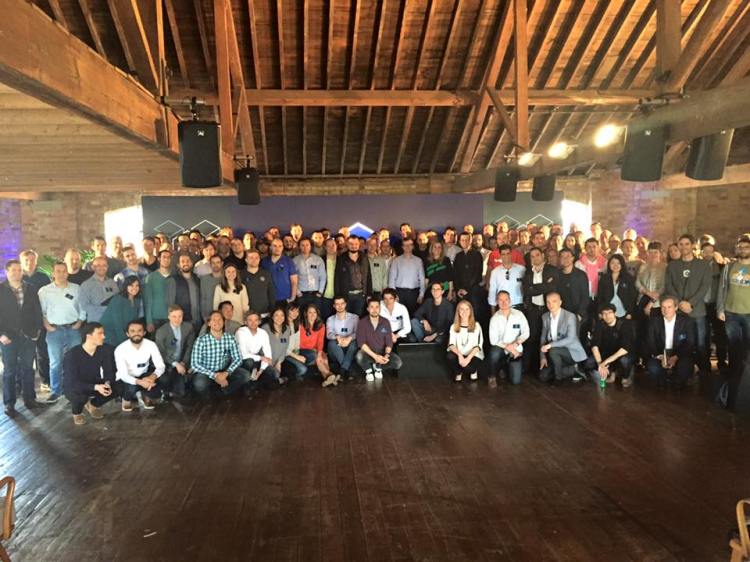Since Facebook first opened its platform to developers in 2006, games have been one of the most critical and successful category of apps on the social network.
But a lot has changed in nine years, both for Facebook and the gaming industry. And two of the latest trends were at the core of the fourth annual CEO Gaming Summit in London last week.
Held at the Ugly Duck meetup space, the event gathered CEOs from more than 150 of the top gaming companies in the Europe, Middle East, and Africa (EMEA) region. And that number, while still smaller than a companion event that Facebook held in the U.S, represents one of those big themes: the growing might and influence of European gaming companies.
VB produced Mobile games monetization: What successful game developers do differently
$499 on VB Insight, or free with your martech subscription
“In terms of revenue from Facebook games, EMEA is disproportionately part of that,” said Bob Slinn, Facebook’s head of games partnerships for EMEA, in an interview with VentureBeat.
Facebook is engaged in a fierce battle with rivals to win the hearts and minds of developers. But so far, the company has maintained a competitive edge by creating a range of tools for developers while also cultivating their loyalty at events such as the CEO Summit, where Facebook can offer advice and community.
To understand just how important gaming is to Facebook, consider just a few stats:
- More than 445 million people play Facebook-connected games on desktop and mobile every month.
- Facebook drives 441 million referrals to games every day.
- Developers launched more than 130,000 new Facebook-connected games last year.
Within those numbers, Europe looms increasingly large. The invite list for the London event included King, Supercell, Ketchapp, InnoGames, Miniclip, Pretty Simple, NaturalMotion, Wargaming, Space Ape, and Goodgame Studios.
The first year Facebook held the event, 30 companies attended. Last year, 100 did. “Each year, the scope has only gotten bigger,” Slinn said.
At the event, Facebook held panels on how to raise money and how to build a brand. The latter is increasingly important as developers try to move from being one-hit wonders to creating long-term companies. In addition, developers are finding it tougher and tougher to stand out and be discovered by users. User acquisition was a big topic at the summit, Slinn said.
“That is arguably the big challenge,” he said.
The CEO Summit this year highlighted another big trend: the shift to mobile. Facebook initially had big success getting developers to build for the desktop using its Canvas tool, which let them embed games within Facebook.
These days, though, it’s all about mobile gaming. In some cases, Facebook is trying to help some of those Canvas users make the transition to mobile. But Facebook is also aggressively looking for new, mobile-first (or mobile-only in some cases) developers.
“In the past year or so, we’ve really focused on people who are only focused on mobile,” Slinn said.
A prime example of this new breed of mobile-focused, European gaming company is Scimob, based in Montpellier, France. Founded in 2008 to build apps for other companies, Scimob shifted in 2012 to being a studio that built its own mobile games, according to Gaël Bonnafous, Scimob’s founder.
The first game was called 94 Seconds and was No. 1 on Apple’s App Store in France for several weeks and even topped the U.S. charts for a week. Since then, Scimob has released four games that mix trivia, word play, and puzzles.
Scimob is small, with just nine employees, and entirely self-funded, pulling in $12 million in revenue so far. But it has big plans. It is hiring new teams to build for iOS and Android simultaneously. And perhaps next year, it may go in search of venture capital to expand even faster.
“We are scaling this year, because now we have the experience and we have the knowledge,” Bonnafous said.
While Scimob’s games are on iOS, Android, and Amazon, Bonnafous said the company still relies the most heavily on Facebook. He said Facebook’s mobile analytics tools are still superior to Google’s. And Scimob uses Facebook’s Parse mobile-development platform to build and host its games. The company gets the bulk of its players via Facebook app-install ads.
“When you have a player coming from Facebook, they are really engaged,” Bonnafous said. “They are going to really play your game.”
That’s just the kind of feedback Facebook wants. Maintaining that kind of goodwill will only become more essential for Facebook as Europe’s gaming industry rolls on.
“A lot of these companies in EMEA are global leaders,” Slinn said. “We think we have a lot of the global hotspots for gaming here in Europe now. And the diversity of games is incredible, and we only expect that to increase.”
VentureBeat's mission is to be a digital town square for technical decision-makers to gain knowledge about transformative enterprise technology and transact. Learn More

